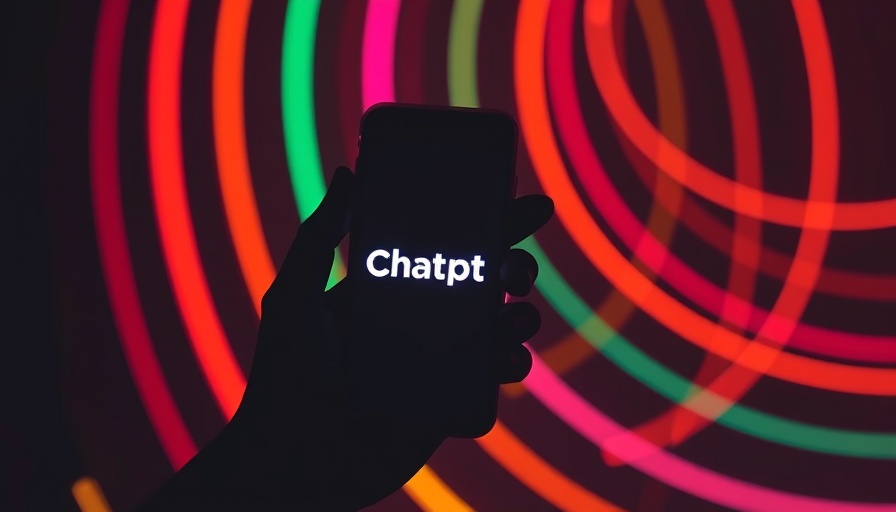
The Hidden Costs of Chatbot Dependency
A recent study from OpenAI in collaboration with MIT sheds new light on the mental health implications of using chatbots like ChatGPT. The research indicates that frequent interaction with these digital companions may correlate with higher levels of loneliness. As society increasingly turns to technology for companionship, these findings prompt an essential conversation about the balance between digital engagement and real-world relationships.
Understanding the Research Findings
The study highlights a troubling trend: individuals who engage with ChatGPT for extended periods report feelings of emotional dependence on the tool. While chatbots can offer immediate conversation and support, especially during times of isolation, their overuse might result in a decline in social interactions with humans. For many, the ease of conversing with a chatbot could inadvertently displace the complexity and richness of human relationships.
Comparative Perspectives: Chatbots vs. Real Relationships
To contextualize these findings, it’s important to explore what makes human connections irreplaceable. Unlike chatbots, humans provide empathy, emotional support, and a shared context that digital interactions inherently lack. By choosing chatbots over human interaction, users may find themselves trapped in a cycle of loneliness and dependence. This raises an urgent question: how can we enjoy the benefits of AI without compromising our social health?
Emerging Trends in Technology Usage
As AI technologies continue to evolve, they influence human behavior in profound ways. The rise of virtual friendships could symbolize broader cultural shifts in how we perceive connectivity. For instance, as remote work and online communication become the norm, individuals may rely heavily on AI for companionship, particularly among younger generations raised in a digital-first environment. Understanding these trends is crucial for developing strategies to promote healthier interaction patterns.
Potential Solutions and Recommendations
To combat the tendencies toward social isolation linked to excessive chatbot use, individuals can implement several strategies: 1. **Set Usage Limits**: Designate specific times for chatbot interaction, balancing it with time spent with friends and family. 2. **Engage in Group Activities**: Join clubs, events, or activities that focus on in-person engagement to foster meaningful relationships. 3. **Seek Professional Help When Needed**: For those experiencing significant loneliness, connecting with mental health resources can provide support.
Cultural Reflections on Digital Companionship
It's easy to equate comfort with chatbots, especially during stressful times. ChatGPT may serve as a reliable outlet for thoughts and feelings, but this can lead to overlooking human companionship's emotional depth. Reflecting on personal motivations for using these technologies can help users understand their emotional needs and fulfill them through healthier channels.
What This Means for Our Future
The integration of AI into daily life presents both challenges and opportunities. As we navigate our digital landscapes, the key to a healthy balance will be maintaining our human connections while leveraging the benefits that technology provides. Users can cultivate both AI interactions and human relationships, ensuring they do not become mutually exclusive.
In conclusion, while chatbots like ChatGPT may provide immediate solace and companionship, it is crucial to remain aware of their potential isolating effects. Users are encouraged to engage actively in building and maintaining their real-life relationships to prevent the loneliness that stems from an overreliance on technology.
As we advance into this new age of AI, let us embrace its possibilities while safeguarding our essential human connections. Balance is key.
 Add Row
Add Row  Add
Add 




 Add Row
Add Row  Add
Add 

Write A Comment